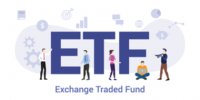- Date
- 19 January 2022
BlackRock’s Assets Under Management Hits $10 Trillion
BlackRock’s Assets Under Management Hits $10 Trillion
By BK |
What do you need to know this week?
BlackRock, the world’s largest investment management company, saw its assets under management exceed $10 trillion for the first time last Friday.
To put this into context: According to The World Bank, the total market value of all finished goods and services produced by the US, the world’s largest economy, was $20.9 trillion.
Why is this important for your interviews?
BlackRock has benefited from a surge of investment into its exchange-traded funds (‘ETFs’). In fact, 75% of BlackRock’s fee growth came from its iShares ETFs division.
ETFs are diversified ‘baskets’ of assets, such as stocks, bonds, commodities or currencies, that can be traded on an exchange. They usually have lower fees and greater tax efficiency than other funds. The key selling point of ETFs is diversity of choice: ETFs spread out risk through having ‘baskets’ of various assets, but give consumers the ability to choose their sector and thematic focus, ranging from robotics and AI to livestock and farming.
Investors often wish to diversify their holdings in times of market uncertainty. This may explain why ETFs attracted more than $1 trillion of ‘fresh cash’ in the last weeks of 2021, following market disruption caused by the Omicron coronavirus variant.
Although fears of the Omicron variant have largely settled for now, it’s too early to rule out the continued growth of ETFs just yet. With rising inflation this year, investors expect to see ETFs that seek to protect investors from the impacts of inflation.
In addition, ESG ("Environmental, social and governance") green bond ETFs have proven increasingly popular. Of last year’s new ETFs, 131 expressly included “ESG” in their name, while 21 claimed to be “sustainable” and eight “Paris Agreement-aligned”.
How is this topic relevant to law firms?
The boom of ETF investments presents a major opportunity for law firms’ banking and finance departments. Several US law firms have already carved out ETF-specialist teams within their banking and finance departments. In addition, a boom in ETF investments, especially equity investments in company stock, will help fund a wider range of companies in their operations. This injection of capital could fuel mid to long-term M&A activity.
However, the growth of ETFs presents challenges. For instance, in the US, what is known as 'active semi-transparent' or 'non-transparent' ETFs have grown in popularity. These types of ETFs allow fund managers to manage ETFs without the need to disclose their portfolio on a daily basis. From a consumer’s perspective, it’s not clear how this form of hybrid investing will perform in volatile markets. Regulators will also have to spend more time and resources reviewing these models before approval - a regulatory gap that may present a great opportunity for law firms with a strong financial regulatory practice.
